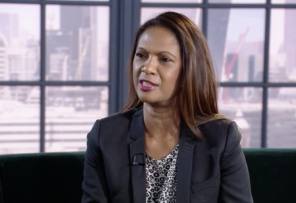

The hung parliament is likely to exacerbate the difficulties of the Brexit negotiations and the uncertainty will not be good for markets, according to investment experts.
Paul Hatfield, global chief investment officer at Alcentra, said with Brexit policy now unclear and real changes likely to be hard to achieve, markets could drift slowly down while sterling will move in line with news flow on views of the likely outcome of trade negotiations.
This morning (9 June) it was impossible for the Conservative government to get the 326 majority they needed but they will be the party with the most seats in the House of Commons.
Russ Mould, investment director at AJ Bell, said given that Prime Minister Theresa May’s gamble that an early general election would deliver a clearer mandate to lead us out of the European Union we are now left waiting to see who if she will be ousted.
Mr Mould said a decision on who will be prime minister and lead us out of the European is needed pretty quickly because the elephant in the room of this nation remains Brexit.
Mr Mould said: “Whoever enters number 10 Downing Street as the new PM now has two years to negotiate a deal with the European Union – or decide whether to walk away without one, and perhaps rely on the World Trade Organisation (WTO) status which already serves us well in our trade relations around the world.
“Some investors will think the stock market is too relaxed about what Brexit may mean for the economy UK plc’s earnings power.
“They might fight shy of British stocks or the pound, or at least sectors with a hefty domestic bias, such as construction, property, retailers and financial services providers.
“Others will think that there is too much gloom about what Brexit may mean and that there could be an upside surprise.
“In that case, these investors may prioritise British stocks over overseas-quoted ones, or those dollar-earners and UK firms with big overseas exposure, such as miners and engineers, preferring the home comforts of banks, construction, retail and real estate.
“Investors need to remember that in the long term it is not politics that determine company valuations.
“Ultimately, it is profit and cash flow that drive share prices in the long term so investors should not let short term political noise divert them from their investment strategy.”
Peter Toogood, chief investment officer of Embark Group, said the Conservative party’s failure to obtain a 326 seat majority in the House of Commons is a setback for Brexit as we are a long way from a strong and stable government.
He said: “The pound will take the strain initially but a more redistributive and left-leaning government is a distinct possibility, which is unlikely to be particularly supportive for risk assets. We are about to live in interesting times.”
Eugene Philalithis, portfolio manager of Fidelity Multi Asset Income, said three months into the Article 50 timeline, which dictates we must exit the European Union within two years, it is now unclear who will conduct negotiations on behalf of the UK or even what those negotiating will aim to achieve.
Mr Philalithis said: “While negotiations are unlikely to begin in earnest before the German elections, this is not the backdrop that anyone will have wanted.”
Nigel Green, the founder and CEO of deVere Group, said rather than securing a bigger mandate for Brexit as she assumed she would, Mrs May’s gamble has backfired hugely.
He said: “With Theresa May’s job now surely on the line, just as the UK is set to begin Brexit negotiations, and a clear shift in voting dynamics across Britain, there is yet another enormous storm cloud of uncertainty about who will lead talks and how they will do so.
“Indeed, we’re entering into a perfect storm of chaos and the uncertainty is set to unleash mayhem across global financial markets, at least in the short term, as they react to the growing question marks hanging over the British parliamentary landscape.
“Volatility is the only certainty in these uncertain times. But, of course, volatility can also bring considerable opportunities and investors should avoid knee jerk reactions at this time.”
emma.hughes@ft.com



